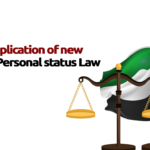
One of the pivotal roles of a data protection officer is to ensure that a company or organization is complaint with the laws and regulations laid out by the General Data Protection Regulation (GDPR) as well as data protection regulations peculiar to a given jurisdiction.
They will monitor a company’s data protection strategy and implementation plans to ensure that the interest of the company is protected. The data protection officer roles and responsibilities are unequivocally set out in the GDPR and as such in most instances, companies are expected to appoint a data protection Officer.
5 Key Responsibilities of a Data Protection Officer
- Performing Frequent Audits and Assessments
One of the key responsibilities of a data protection officer in a company is to make certain that all the company’s employees are in compliance with the GDPR and ensure that where there is a breach or suspected breach of the GDPR, it should be reported timely and efficiently.
- Employee Training
Employees of the company are to be trained often on data processing, what they are expected to do as stipulated by the GDPR and how they should remain compliant. These trainings can be done more than once in a year to help stay informed with recent changes.
- Ascertaining Due Diligence
Data protection officers should always ensure that it executes its due diligence in place when handling the data of subjects. Where there is a breach or suspected breach, the data protection officer should carry out a risk-based approach which will help inform on the level of risk, necessary action to be implemented and notifying the supervisory board if needed.
- Providing Support and Advice
The data protection officer as the expert in matters of data processing, data control, and data management is equipped with the requisite knowledge to provide support, assist in monitoring compliance, and advice to the management and other employees in a company. A data protection officer is not to take instructions on how to effectively implement their tasks relating to data protection in the company. The data protection is only obliged to report any concern to the highest level of management.
- Retaining Comprehensive Records
The data protection officer is saddled with the responsibility of maintaining records of all the data processing activities carried out by the company and it is the responsibility of the data protection officer to provide such records on request according the provisions of the GDPR.
Other roles of the data protection officer include but not limited to supporting the company’s operations, handling data according to the GDPR, being available to data subjects, and providing guidance in completing the Data protection Impact Assessment.
Challenges Encountered by the Data Protection Officer
In the course of a data protection officer carring out his roles and responsibilities,, there are certain challenges that they encounter. Some of these challenges are;
Lack of a Supportive Team thereby handling most of the bulk work
Even with a supportive team, data protection officers are most times expected to work independently and makes the workload overwhelming.
Low or no budget to at the company to cater to the needs of the data protection and privacy departments.
Legal Requirement for Appointing a Data Protection Officer
For a company to appoint a data protection officer, the legal requirement are governed by the GDPR and other data protection laws.
If a company’s core activities involves engaging in large scale monitoring of individuals or processing special categories of personal data, the company is to appoint a data protection officer.
Data protection officers are also required to possess specific professional qualities and expertise including expert knowledge of data protection law and practices.
In order for a company to conflict of interest, the DPO cannot hold a role that leads to determing the purposes and means of the processing operations. Companies are expected to provide the data processing officer with important staff and resources for effective implementation of their roles and responsibilities.
Becoming a Data Protection Officer
For you to become a data protection officer, there is no official qualification needed to become a data protection officer. Although to have a data protection officer certification, there are numerous data protection officer training and skills that can be acquired to become part of a data protection team.
Data Protection Officer Principles (Expertise Needed)
For the role of a data protection officer, the following area of expertise are needed;
Deep-rooted knowledge of the GDPR and other data protection laws of the jurisdiction
Understanding in data protection compliance, processing personal data, and accountability.
Skilled in monitoring data protection rules and liaising with data protection authorities
Expert in handling special category data and personal data breaches
Possessing qualities like integrity, conflict of interest management, and independence
Providing guidance on data protection obligations
Conclusion
the role of a Data protection officer in a company cannot be overemphasized enough which is why companies especially those that are involved in receiving and handling data from customers or clients to have a data protection officer to avoid breaching their rights and fining itself in an avoidable suit.
Existing employees of a company are also encouraged to offer maximum support to the data protection officer by providing information, cooperating in assessments, and ensuring regulations are abided by wholly.
For more information on data protection in your company, you can reach out to us for a free consultation on protecting subject’s data. We also offer other services ranging from immigration, real estate, debt recovery, document attestation, family law, company formation, company management and a host of others.
We at eLegal Consultants are ready to journey with you to actualize your dreams. Contact us today.



